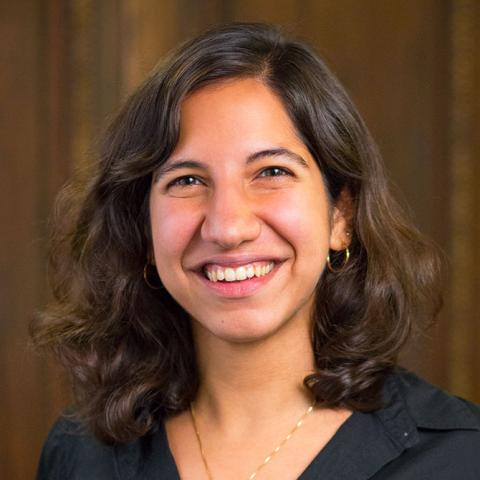The Dose will be taking a short summer break while our team works on brand-new episodes for the fall. Thank you so much for joining our conversations with health policy experts as they share new ideas about how the U.S. can improve health care for everyone. Listen to our season finale, where we highlight some of the accomplishments of our guests.
As we get to work crafting the next season, we need your help! If there are guests you’d like to hear from, or topics you’d like to learn about, let us know. Send an email to [email protected], or find me on Twitter, @shanoorseervai. I love connecting with listeners, so please don’t hesitate to reach out.
Transcript
SHANOOR SEERVAI: Hi, listeners. The Dose is taking a short summer break, and our team will be working on new episodes you’ll want to hear in the fall.
Before we head out, I wanted to catch you up on the work of a few of the experts we’ve had on the show.
At the beginning of the season, Priti Krishtel, a health justice lawyer whose work is focused on building a more just and equitable medicines system, talked about the importance of overhauling the U.S. patent system. Listen to her vision:
PRITI KRISHTEL: To fundamentally reshape our global health system into one that works for everyone, I do think that we need to look at . . . the medicine system, from drug development through to access. . . . And the patent system lies at the heart of that because it’s the power center. We need a new set of rules to ensure that either bringing this pandemic to a close, or thinking about being better prepared for future ones, we need a better system. And governments have to play a greater leadership role in that new system.
SHANOOR SEERVAI: Her voice is being heard, and not just here. In April, the New York Times editorial board called for patent reform, bringing this issue to the forefront of a national conversation about the high price of prescription drugs.
Listeners of The Dose also heard a couple of conversations during the season about the unprecedented mental health crisis we are facing in this country. In one episode, our guest Dr. Kevin Simon explained how this most acutely impacts young people of color. Dr. Simon is a child psychiatrist in Boston, whose work extends beyond the clinical to building a cohort of culturally competent providers:
KEVIN SIMON: The reality is that racial concordance cannot possibly happen for all of the patients that have some melanin hue to them seeking a individual provider that also has some melanin hue — there just aren’t enough of us. And so that’s going to require non-Black, non-brown providers to be, like, intellectually and genuinely curious to the experiences of the youth that present to them.
SHANOOR SEERVAI: Just this week, Dr. Simon was named chief behavioral health officer of the Boston Public Health Commission.
But the conversation that’s currently on my mind is the one I had with University of Minnesota professor Rachel Hardeman about how to measure structural racism in reproductive health care.
I’ll tell you why: the leaked draft Supreme Court ruling on abortion.
If the constitutional right to an abortion guaranteed by Roe v. Wade is overturned, women and birthing people in this country will face numerous barriers to safe and effective reproductive health care. The impact of these restrictions on access will fall disproportionately on Black birthing people.
And so, as I’m thinking about the fallout when the ruling is delivered later this summer, I am looking to Dr. Hardeman’s work for inspiration about why it’s important to gather both the statistics, as well as the stories, of the people who bear the brunt of the gaps in our health care system:
RACHEL HARDEMAN: Stories are incredibly important for this work and being able to share the lived experience, and also to say to clinicians: “This is a story from your institution” is incredibly important. Because it’s so easy to say, “Well, that doesn’t happen here,” or “I’ve never seen that happen.
SHANOOR SEERVAI: You can expect an episode in the fall on how the Supreme Court decision will impact Roe, as well as conversations about what the midterms mean for health care, where the pandemic may take us — I know, I know, I also wish the pandemic was over — and so much more.
We have an amazing team here at The Dose, and as we get to work crafting this next season, we want to hear from you!
If there are guests you’d like to see on the show, or topics you’d like to learn more about, let us know. Send us an email on [email protected], or find me on Twitter, @shanoorseervai. I love connecting with listeners, so please don’t hesitate to reach out.
Thanks for listening to The Dose. I’m Shanoor Seervai, and I hope you’ll be looking out for our new episodes this fall.
Show Notes
Priti Krishtel — “For Global Vaccine Access, Overhaul the Patent System”
Kevin M. Simon, M.D. — “Closing the Mental Health Care Gap for Black Teens”
Rachel Hardeman — “The Quest for Equity in Reproductive Health”
